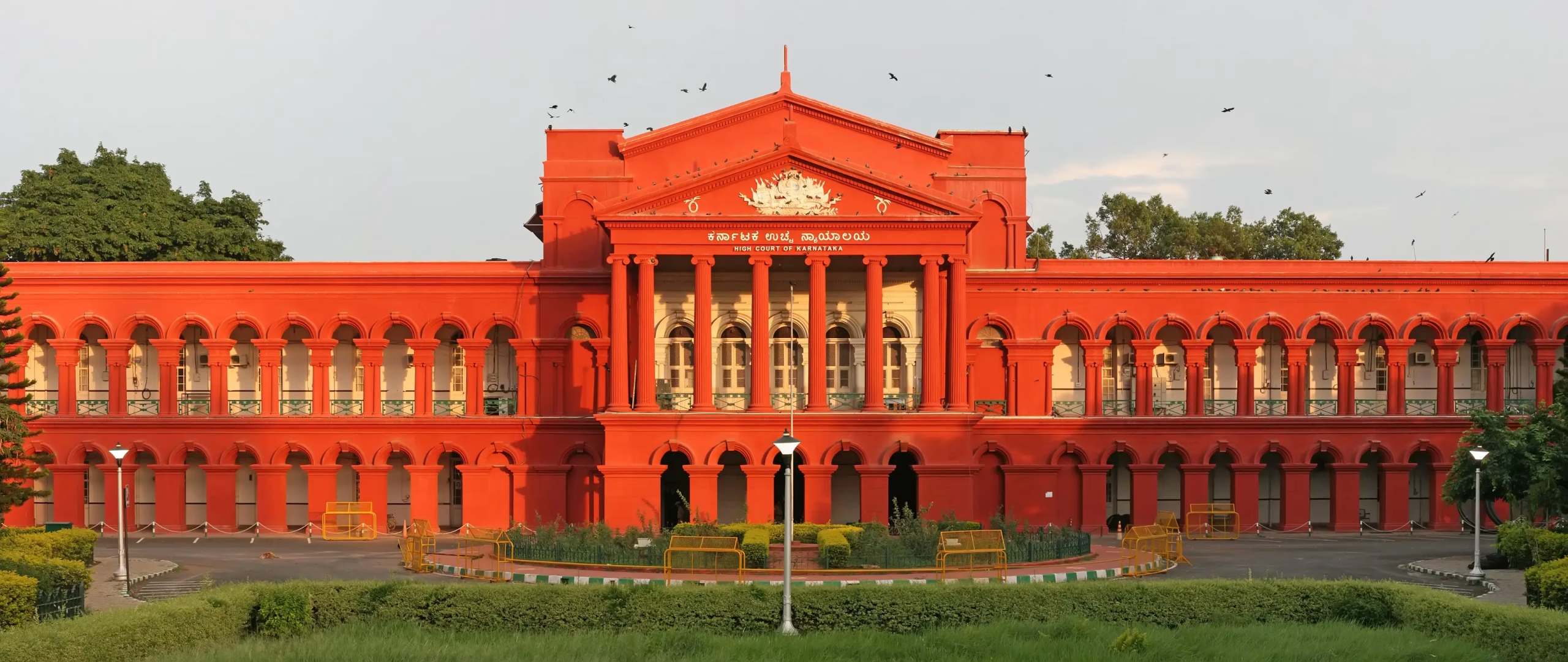Court: High Court of Karnataka, Bengaluru
Judgment Date: 29th November 2024
Case: Writ Appeal No. 679 of 2023 (GM-RES)
Coram: Hon’ble Mr. Justice S.G. Pandit and Hon’ble Mr. Justice Ramachandra D. Huddar
Background:
Union Bank of India (formerly Corporation Bank) filed this writ appeal challenging the order of the Single Judge passed in W.P. No. 8646/2017, which had directed the bank to release Fixed Deposits (FDs) along with interest to the petitioners (respondents in appeal), namely V. Harish D. Kamath and V. Divakar D. Kamath.
The dispute arose over Fixed Deposits originally held by the petitioners’ father, late Devadas S. Kamath, which the bank had appropriated towards the loan default of M/s. Shreshashayana Enterprises. The said loan was secured by hypothecation of a fishing boat and collateral security in the form of Fixed Deposits.
Key Facts:
- Loan Default: M/s. Shreshashayana Enterprises availed a loan of ₹4,75,000 for a fishing boat. The petitioners’ father had provided Fixed Deposits as collateral.
- Lien Clauses: After their father’s death, the petitioners signed documents in 1990 and 1992 affirming the bank’s right to enforce a general lien and appropriate the deposits if the borrower defaulted.
- DRT Proceedings: The bank had initiated a civil suit for recovery, later transferred to DRT. A recovery certificate was also issued.
- Bank Action: On 31.03.2016, the bank credited the FD proceeds of ₹35,16,163 to the loan account under its general lien.
- Challenge: The petitioners challenged this action via writ petition, claiming lack of notice and wrongful deprivation of FDs.
Single Judge’s Findings (Now Overturned):
• Held that once the Debt Recovery Tribunal (DRT) issues a recovery certificate, the bank cannot proceed against third parties not mentioned in the certificate.
• Directed the bank to refund the FDs with interest to the petitioners.
High Court’s Ruling in Appeal:
• Lien is Lawful: The division bench upheld that the bank validly exercised its general lien under Section 171 of the Indian Contract Act, 1872.
• Valid Undertakings: Petitioners themselves executed documents explicitly permitting the bank to adjust the FDs against the borrower’s default.
• No Violation: There was no “contract to the contrary” to bar the exercise of general lien. Hence, fairness doctrine or prior notice wasn’t a prerequisite.
• Recovery Certificate Irrelevant: Recovery proceedings from DRT do not limit the bank’s contractual rights under general lien agreed by depositors.
• Reference to Precedents: Relied on Syndicate Bank v. Vijay Kumar (AIR 1992 SC 1066) and Halsbury’s Laws of England, reinforcing the banker’s right to general lien unless contractually barred.
Conclusion:
The Karnataka High Court set aside the Single Judge’s order and held that Union Bank of India was justified in adjusting the Fixed Deposits towards the defaulted loan. The appeal was allowed, with no order as to costs.
Legal Importance:
This ruling reaffirms banks’ rights under Section 171 of the Contract Act to exercise a general lien over securities and deposits—especially when specific undertakings exist—even in the presence of DRT recovery certificates.

